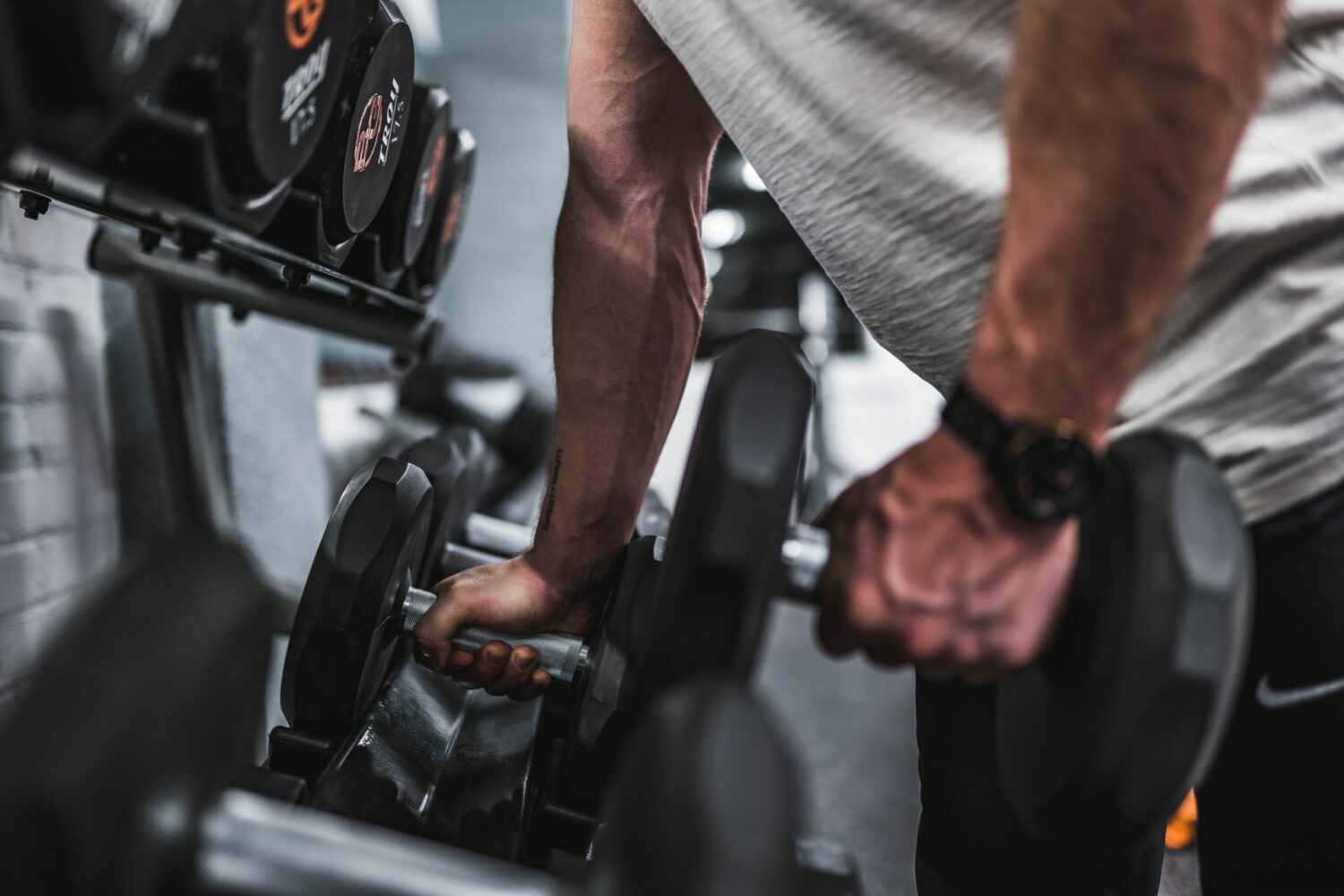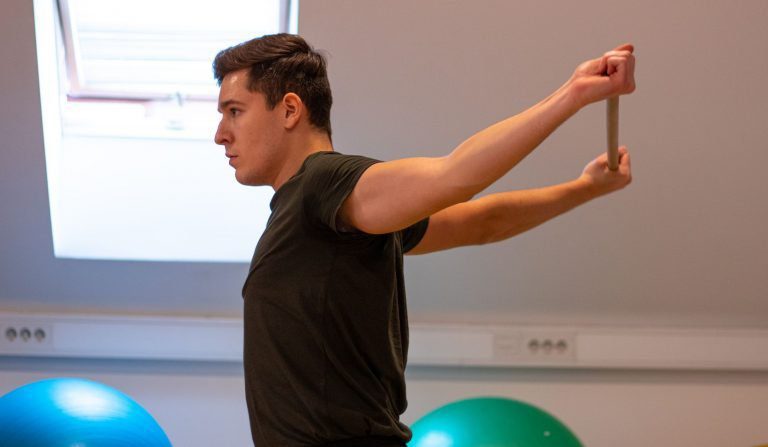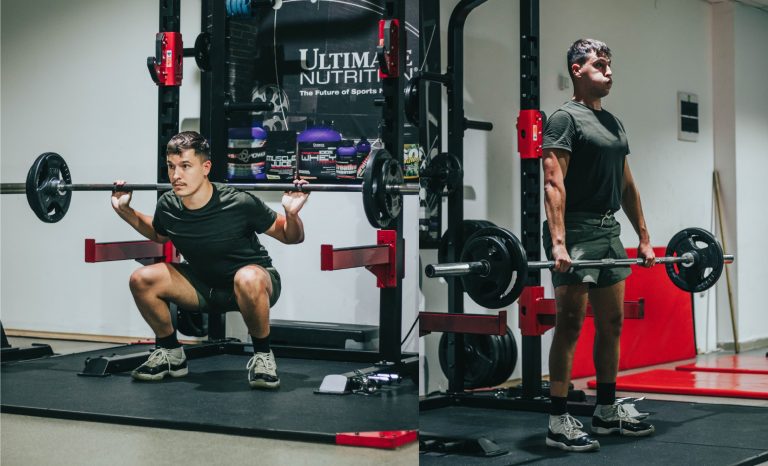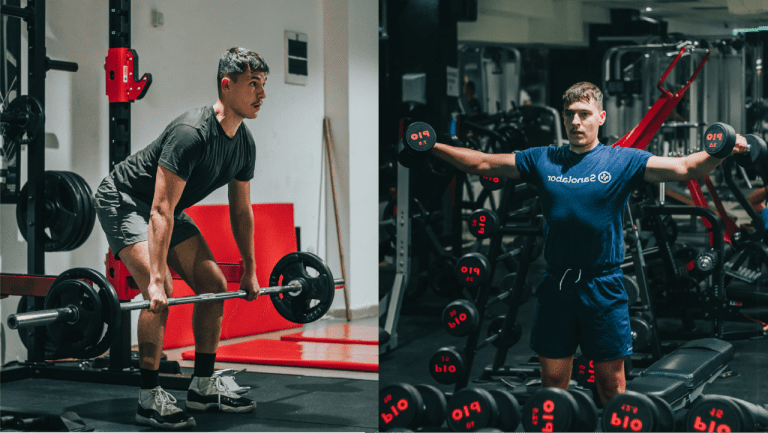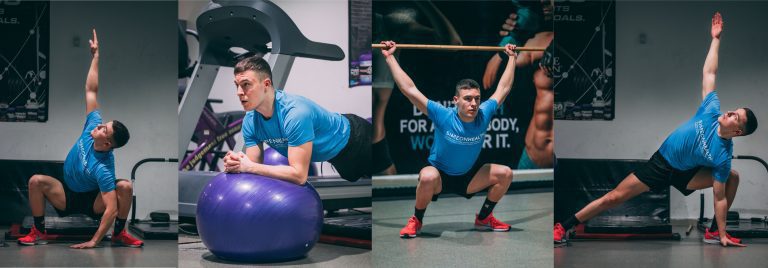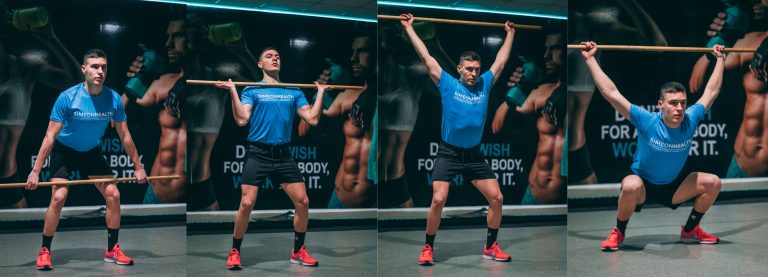Fitness Mindset for Health: 8 Tips to Develop a Fit Person Mindset
What is Mindset?
Mindset is a set of assumptions, beliefs, and attitudes, which is the rationale for the way you act and understand the world. Of course, you can’t really define such a complex matter with a few simple words, but we’re getting close.
It is synonymous with mentality, it is the way you think about yourself, life, the world, and how you judge any given situation. It drives who you are, and the decisions you make, but also affects your motivation. How do we adopt a better fitness mindset for health though?
What is Fitness?
Fitness is the state of well-being, being physically fit and healthy. Being able to move with fluidity, to lift, push, pull and resist. To crawl, to jump, to stretch. But besides these gym-like qualities you get with training, Fitness is much more.
It is being able to sleep well at night, have a good relationship with food, find balance in your life, listen to your body, foster healthy relationships, focus on your career, etc. You can do this if you’re fit, healthy, and learn how to nurture your body.
How To Be Active?
Many of us work for security, for vacations, for passivism. But if we look back to when we feel at our best, it’s when we can flow with the challenges that life throws at us. When we are a problem-solving machine.
When we are active both physically and mentally. Because there is pride that comes with being a better version of yourself, with making your bed, eating clean, exercising regularly, taking on challenges, etc.
If we have too much mental (work) or physical stress (exercise) we’ll slowly degrade. If we have just enough stress that we can fight our way out, we can adapt and regenerate. That’s how we become stronger, by finding that balance. The same goes for health and fitness. So what’s the first step toward becoming more active?
Growth vs. Fixed Mindset
The way we think can have a tremendous impact on our motivation for living a healthy lifestyle. Why? Because our thought patterns and our self-image has a massive impact on our decision-making and motivation. Who’s more likely to learn, exercise or be active?
Well, if we compare the growth mindset which holds the belief that we can develop our talents and abilities through hard work, to the fixed mindset which thinks our abilities or success depends upon fixed traits we can’t change, who do you think wins?
It is like asking can a man that’s not so genetically good at sport become fitter with exercise? He may not win the CrossFit Open games, but he can sure as hell be fitter, right?
Adopting a growth mindset in the fitness area will open up a whole new world for you. The cons? Putting your ego aside and learning, trying out, accepting what you don’t know or have, looking funny and being uncomfortable at the gym, etc. The pros? More strength, less fat, better aesthetics, higher aerobic capacity, better health, longevity, energy, vitality, basically limitless list.
The area of fitness and health is important for any individual. It’s like psychology, finances, education, if you don’t master it, it will bite you later. Fixed mindsets about fitness don’t help us much. We have to move, explore, lift, run, sweat, and stretch to feel it becoming a part of our identity, to alter our self-image, to improve..
8 Tips to Develop a Fit Person Mindset
1. Listen to a Podcast, Read a Book
Consuming content around health, fitness and nutrition can drive a lot of interest in such fields, as your knowledge increases. You’ll feel more confident because you know what you are doing. You’ll be inspired to make a change because now you know WHY vegetables are healthy for you.
Listening to a podcast, or reading a book doesn’t just inspire you, it is educational. Once you know the “why” and “how-to”, it’s much easier to take action. Once you hear stories about a specific diet or exercise regime, you’re excited to go and try it.
It doesn’t just give you ideas, inspiration, and motivation. It also alters your thoughts. You start thinking about the things you’re constantly consuming (if there’s enough interest).
Your thinking energy shifts towards Health and Fitness. Random thoughts start popping up like “what’s my next workout” or “that smoothie wasn’t so bad” and you get into the FIT cycle. If sustained for long enough, it can alter your self-perception and identity, positively, thinking that you are someone who works out, eats clean, etc.
Pro Tip
Find the specific topics you’re interested in health, nutrition, or fitness. Buy a book, start reading or listen to a free podcast. When you cook, go to work, during free time, when washing dishes, just start.
2. Focus on Long-Term Goals, Sustainability
It’s a massive problem when 40-year-olds come to a CrossFit box and are crushed, literally by a workout session that had way higher intensity than they can adapt to.
Going by the 100% mentality or “no pain no gain” won’t be good for an amateur, new starter. Instead, think of fun activities that can be sustained. Something you’ll do for the long run.
Because the extremely vigorous, high-intensity workouts won’t help you lose weight if you quit doing it. A workout shouldn’t feel like a drag. It shouldn’t be a form of suffering we “have” to do. No one profits from 3 months of grueling work, just to get their weight back up.
Why? Because as we get older motivation fades. We’ll end up overweight and unmotivated, sitting on our couch. Instead, if we could just learn to bike to work, take a hike once weekly, play a little ping-pong, and lift some moderate weights here and there, that could be sustained.
What matters in the end, is that we are fit, healthy, happy, and well-balanced. For that, we need to adopt a fitness mindset that encourages movement which can be sustained and enjoyed. Explore and find yours.
Pro Tip
Focus on finding activities that are fun for you, something you could do for the long run. Stop dreaming about fast changes. Take a hike, jump some rope, lift some weights, stand up and stretch at work. It’s about being fit, eventually.
3. Ease Up on Judgement and Critiques
This is a complex psychological topic and not as easy-fix as it may sound. We critique ourselves, and other people. We hold ourselves to a certain standard. Many believe that being rough on yourself is the path to being fit.
While athletes may have such high standards in the gym, regular people who exercise for health don’t need to be so restrictive. It’s not about training for 2 hours a day and eating kale. It is about making small adjustments that improve your health and fitness.
Judging ourselves for having a few extra calories, or not hitting 8 but 7 sets in the gym doesn’t help anyone. Not even us. When we position ourselves as the enemy, we feel like we are our police officer counting every bite. That’s not pleasant, that’s not a way to live.
And that’s when we don’t want to cooperate. We become ignorant and easily quit in disparity. We once again form that image that we can’t be on a diet, exercise that much, or that being healthy and fit is a grueling lifestyle.
Instead of pushing the red button on ourselves, we can try and work our way into being more acceptant. Sometimes we’re stressed, sometimes circumstances are tough, sometimes compromises take place, But that’s okay, as long as we can continue living a fairly healthy lifestyle, there’s no need to be so hard on ourselves.
Pro Tip
Next time you “step out” of your diet or exercise regime, go easy on yourself and focus on continuing a healthy lifestyle.

4. Leverage Motivation, Don’t Wait for It
There’s this notion that you should wait for motivation to arrive, so you do the work. The thing is, motivation or inspiration and work are intertwined. Sometimes motivation increases as we progress in doing the work.
This is partially explained by the dopamine increase even if we do work we’re uninterested in, but we progress in. It’s why all the games have levels, and rewards to them.
Point is, that doing the hard work results in progress, which increases dopamine and motivation, so we repeat a cycle. Or it can be the other way around, either way, motivation isn’t a necessity to work hard.
As you lift, run, or eat healthier, you’ll most likely notice positive changes. Be it fat-loss, improvement in physical performance, running longer, 6-pack showing up, whichever it is, it drives your motivation.
Pro Tip
Don’t wait for motivation to change your life. If we do the work and we progress, dopamine is secreted and motivation increases. Sometimes it takes doing the hard work to give motivation a chance to arise.
5. Alter Your Self-Image and Identity
It is amazing how fixed we can be in our self-image. It is also amazing how many self-development experts will tell you to do positive affirmations or visualization. Well, what about doing the work?
Going for a run consistently, joining a recreational club, or starting to lift weights with your buddies all change your self-image. You start to identify with this “fit” or “sporty” or “lifter” person. This can change your self-image and make you feel capable.
Buying a couple of sports clothes, some equipment, new running shoes, etc., might be a step-up to give yourself a motivation and self-image boost. If that can make you more regular with your workouts then so be it. Just know everyone can start with minimal equipment, don’t let it be a limiting factor.
From my experience, people coming to run or do functional work at our club all have branded t-shirts from the company that I work for. They mingle, talk, and go out for a drink, but twice a week they come and put in the work. They’re all identifying themselves as part of the community, having a sense of support, teamwork, and sports identity.
Pro Tip
Putting in the work can actually be way more important and effective tool to change your self-image and identify as a “fit” or “active” person, than trying positive affirmations or visualization. Joining a community or buying sports equipment can additionally increase your motivation too.
6. Be Aware of The Feeling During & After a Workout
Many people feel workouts like a grueling activity filled with suffering. It’s worth considering what history or past experience you have with exercise. Maybe you didn’t do well in sports when young. Maybe you felt uncomfortable in the gym. That’s not a reason to not explore your potential further.
Point is, inactive people maybe haven’t been presented with an optimal way to work out. This is why many people don’t understand how bodybuilders can enjoy lifting weights.
Actually, the blood flow and heart rate increase during running feels amazing to many. The endorphins after a workout calm you down, and make you feel satisfied and happier. The muscle pump you get after a few push-ups and pull-ups feels pretty good.
Being aware of these feelings and sensations in your body after a workout is crucially important. Being present with your workout, feeling the muscle contracting, and feeling your lungs expanding is the key. You’re present, one with your body. It is the highest form of enjoyment I’ve found so far.
Pro Tip
Workouts don’t have to be grueling, die-hard intensity. Try out an activity that’s fun for you, and be aware of how you feel during and after. Feel your muscles if you are lifting weights, feel your lungs & heart rate if you’re running, and pay attention to your mood after training.
7. Celebrate Your Successes, Emphasize the Good
One superpower mind hack you can leverage is celebrating your wins. It seems counterintuitive, especially in our intense culture, but celebrating your successes may have a positive impact on your self-image.
Celebrating your wins, body transformation, or picking up that new workout habit can be great for your self-image. It’s like putting an emphasis on the good that you’ve done. It’s showing to yourself you’re capable of change.
That teaches us to be nice to ourselves. To value the work that we put in. To find worth in and respect the little things. It changes the way we talk to ourselves. It allows us to explore the other side of self-respect.
Pro Tip
Next time you achieve something good, a goal or just staying true to a habit you chose, celebrate that. Thank yourself for it, emphasize the good.
8. Train Strategically, Not to Failure
When we talk of strategies people think of business. Like Fitness was so simple. Our bodies and our hormones are much more complex than we understand. If it was just eating less and training more we’d all be fit.
We must analyze our circumstances. See what are the stressors present to us. Find what takes up our time. Then by cutting some of that slack, we may find time to prioritize working out, cooking healthier, or sleeping better.
Strategy-wise, for many inactive people, just starting out with active transport like biking to work, taking office breaks to stretch, and taking the stairs would start the change. For some lifters that will be de-loading the weight and taking an active rest week, increasing their protein intake, and getting a massage.
For tight people with shortened muscles, imbalances, and pain that may be doing some good 20 min. full body mobility exercises like neck stretches, supported squats, torso rotations, chest openers, and cat-cows.
Whatever your strategy is, you shall plan long-term. Extreme diets or hard grueling workouts are less likely to lead to long-lasting change. Instead, find your activity and structure your day to make it possible.
Pro Tip
Try to plan for the long term. Analyze your environment, see your weak points and try to structure the day so workouts can easily fit in. Pick activities that you adhere to, and talk to a health & fitness expert. Accumulation of small changes leads to big results.
The Altruism Around Fitness & Taking Care of Your Health
Taking time for yourself isn’t glorified in today’s culture. To cook, sleep better and work out seems a bit selfish. But think of all the benefits everyone around you would have if you were to live a healthier lifestyle.
Exercising regularly can:
- improve mood, reduce mental health problems, reduce depression and anxiety (1)
- improve body composition, increase muscle mass and strength, improve aerobic endurance and physical fitness (2) (3) (4) (5)
- improve cholesterol profile, reduce risk of cardiovascular disease (6) (7) (8)
- prevent metabolic syndrome diseases, reduce inflammation and diabetes or obesity risk (9) (10) (11)
- improve focus, productivity, and mood which can result in better career success (12) (13) (14)
Why is this better for others? How is this altruistic?
First of all, taking care of yourself is important for you. Second, it sets a great example for your peers, family, or children. Developing the habit of healthy eating or cooking at home can change your (and your family’s) health for the better.
Better immunity means fewer sick days. Exercising improves cognitive performance, both of which are associated with higher work /career success, which can translate to better financial results, etc.
Basically, if you take care of yourself, and develop healthy habits you can inspire or teach people around you to do the same. This effect is multiplied if more people start eating healthier, being more productive, having higher self-respect and confidence, and exercising more. It’s good for you, the people around you, and the planet.
Conclusion
A fitness mindset is about adopting a set of beliefs and attitudes which prioritize health, fitness, and nutrition. Consuming health-fitness content (podcasts, books) and leveraging motivation can be starting points. Working out persistently, joining a club or “fitness community” along with investing in some sports equipment can shift our perception and alter our self-image to a “fitter” version of ourselves. Focusing on long-term success, finding fun and sustainable activities, strategical planning, and being aware of feelings and sensations after workouts can fuel our motivation and ensure optimal positioning for success.

